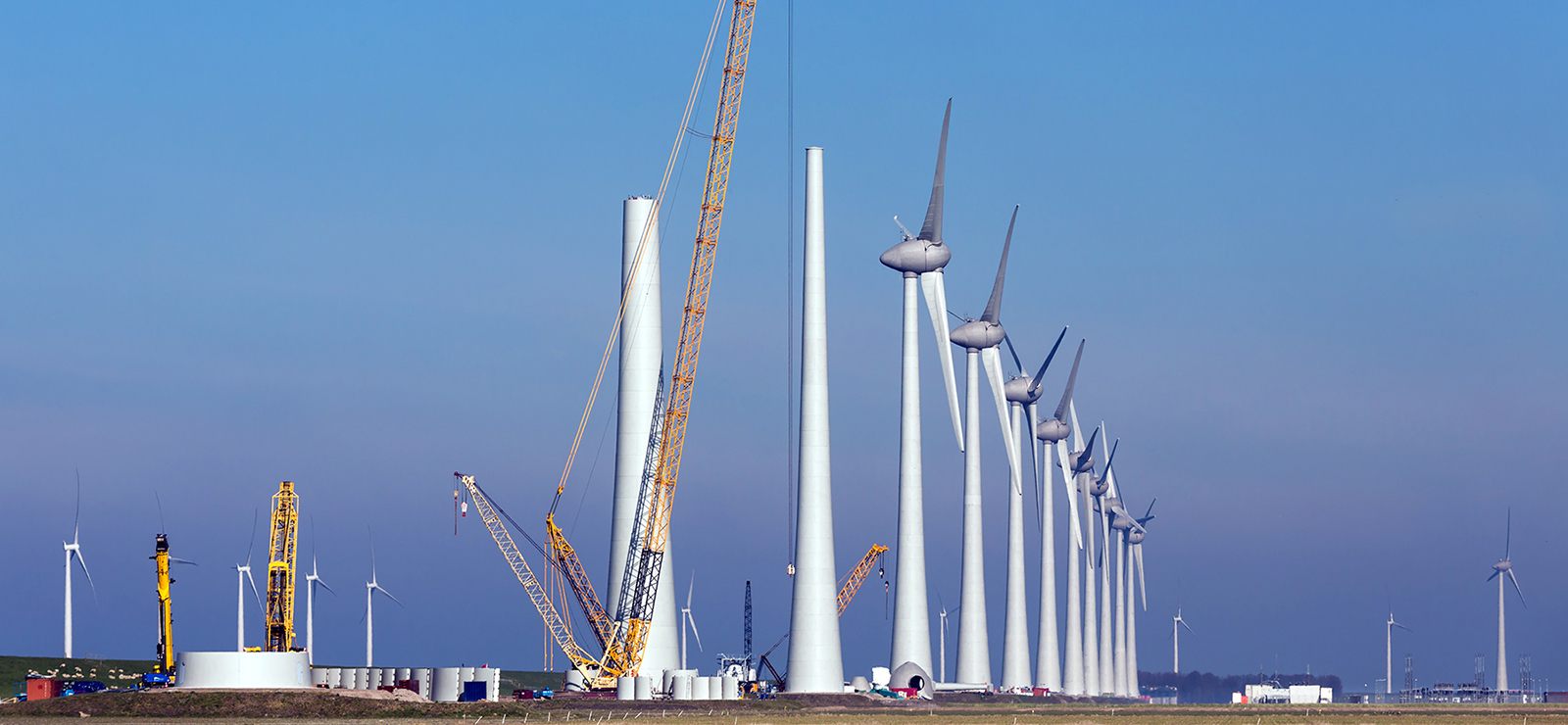CEEPR Working Paper 2020-016, August 2020
Bjarne Steffen, Valerie J. Karplus, and Tobias S. Schmidt

Technological change in industries that are characterized by large technical systems often occurs incrementally along given technological trajectories. Given the urgency to mitigate climate change, a key concern for researchers and policymakers alike is to identify strategies for inducing and accelerating the adoption of radically new technologies in such otherwise slow-moving sectors.
The electricity industry is a prime example: While electricity is indispensable for modern societies, its generation is the single largest contributor to anthropogenic CO2 emissions (IPCC, 2014). At the same time, electricity is a commodity that can be produced using an array of different technologies, including established and very carbon-intensive technologies (e.g., coal) as well as largely carbon-free technologies (e.g., renewables like solar PV and wind turbines). Incumbent utilities play an important role in many countries, and the adoption of renewables by these players is a key requirement for a low-carbon transition of the industry.
While the effectiveness and efficiency of various policy instruments to support investments in renewables has been studied, little is known on the role of utility ownership. Particularly in the European Union (EU), the liberalization of electricity markets led to a co-existence of state-owned and private utilities. Past research studied pros and cons of these options in terms of productivity and market power, amongst other factors, but the role of ownership in the adoption of low-carbon technologies remains elusive. To fill this gap, we bring together innovation literature and the economics literature on ownership to derive hypotheses how ownership could affect renewable energy adoption by utilities, including through drivers such as incentives to innovate, exploiting state ownership to advance climate policy, general climate policy stringency, and the impact of incomplete contracting.
Empirically, we study the case of incumbent utilities in the European Union (EU) during 2005–2016 (a period in which the EU was bound by the Kyoto protocol, and all EU countries had binding targets to increase the share of renewable energy in their energy mix). A large-n regression analysis of state-owned and private utilities’ investment decisions allows us to test our hypotheses with observational data. In addition, we present a qualitative analysis of the investment motives for ten utilities with the most remarkable shifts toward renewables, complementing the regression analysis with further evidence of the mechanisms involved.
We find that in the EU, state-owned utilities had a higher tendency to invest in renewables, particularly from 2009 on. While theory suggests that private companies might be superior in terms of the adoption of new technologies that allow for long-term productivity growth, it appears that state ownership may be more effective in inducing investments that support pro-social objectives, such as climate policy targets. Given the general commercial viability of renewables, we find evidence that governments promote the adoption of renewables by direct fiat and by the choice of managers. However, state ownership does not exert its influence in a vacuum: it interacts with the existence of pro-adoption policies, and state enforcement capabilities.
Regulatory capture is a global phenomenon in which companies seek to advance their interests by exerting influence through the political process. Thus, the effect of state ownership can hinge on the ability of the state to enforce its agenda at the company level. In the EU, we find that state ownership complements regulatory enforcement. Hence, it plays a different role compared to weak enforcement environments such as China in the mid-2000s, where empirical evidence suggests that state control was rather a substitute for systematic enforcement (Karplus et al., 2017, 2020).
While in the case of the EU, there was a significantly higher tendency to invest in renewables at state-owned as compared to private utilities, it is important to note that the question of how ownership structures affect socially-desirable technology adoption is separate from the question of how ownership affects commercial performance. Thus, potential advantages of state ownership from a technology adoption point of view will need to be weighed against any disadvantages from a productivity point of view. In this sense, our results should not be considered an argument for nationalization. However, we suggest that, in the cases where state ownership already exists—such as among electric utilities in Europe—policymakers can strategically exploit this ownership structure to support achievement of climate policy targets.
Further Reading: CEEPR WP 2020-016
References
IPCC, 2014. Summary for policymakers, in: Climate Change 2014: Mitigation of Climate Change. Contribution of Working Group III to the Fifth Assessment Report of the Intergovernmental Panel on Climate Change. pp. 1–33
Karplus, V.J., Huang, Y., Zhang, D., 2017. State Control as a Substitute for Environmental Regulation? Evidence from Chinese Cities. SSRN Electron. https://doi.org/10.2139/ssrn.3054141
Karplus, V.J., Shen, X., Zhang, D., 2020. Herding Cats: Firm Non-Compliance in China’s Industrial Energy Efficiency Program. Energy J. 41
Steffen, B, Karplus, V. J., Schmidt, T., 2020 “State Ownership and Technology Adoption: The Case of Electric Utilities and Renewable Energy.” MIT CEEPR Working Paper 2020-016.





